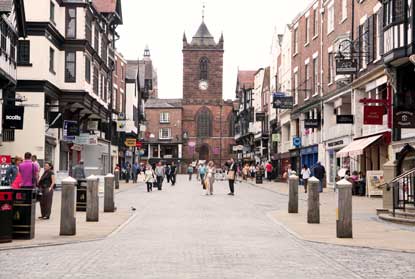
At every Liberal Democrat conference, party members descend on our Glee Club to sing songs poking fun at ourselves and other parties. Each year, they begin with an old Edwardian tune called The Land, whose chorus ends with the line, “God made the land for the people.”
This song has followed my party and its predecessors ever since David Lloyd George proposed a tax on land in his People’s Budget of 1909. His argument was simple: if the land is for the people, then why is our tax system skewed towards the minority of private landowners that actually owns it?
More than a century later, successive governments have failed to give an answer. The issue Lloyd George identified applies with just as much force to our system of business rates today.
The fundamental flaw with business rates is that companies pay according to how much their property is worth, actively deterring businesses from improving their premises. Investing in new machinery or buying solar panels for one’s roof increases a property’s value and, with it, its tax burden. Meanwhile, the speculative landowner delaying development until prices rise keeps his tax bill down.
In other words, the state punishes businesses that improve their productivity and make the most of their buildings and labour, whilst rewarding those who leave their plots unoccupied, derelict or empty. This is without mentioning a hugely delayed rates revaluation that has hit – and in some cases sunk – businesses with unsustainable tax increases and meant that business rates have not accurately reflected changing economic circumstances.
At a time when productivity growth is chronically weak, and high streets struggle to adapt to the rise of online retail, we can no longer allow business rates to hold us back. They must be abolished and replaced with a land value tax.
A new tax on commercial land would help bring about the regional rebalancing that is so badly needed in Britain and remove a major barrier to investment
But while the theoretical case for taxing land is convincing, the practical detail has so far been lacking. That is why Andrew Dixon, founder of the Liberal Democrat Business and Entrepreneurs Network, and a team of experts have put together a report – Taxing Land, Not Investment – showing how a new tax on commercial land values could be phased in. Liberal Democrat members will be asked to vote on the proposals at our conference later this month.
So far, the report has been welcomed by trade bodies and think-tanks including the manufacturers’ organisation EEF, the Internet Services Providers’ Association, UKHospitality, the Institute for Public Policy Research, the Entrepreneurs Network and the Institute of Economic Affairs. The Entrepreneur’s Network called it “exactly the sort of policy entrepreneurs need to thrive” while the EEF said it was “a strong addition to the debate on the future of business rates and property taxation”.
Our new Commercial Landowner Levy (CLL) would charge commercial landowners an annual tax worth around 3% of the value of the land they own, encouraging them to make the best use of it. Land deliberately not built on in the public interest, such as farms, forests, parks, roads and religious grounds, would be exempt from our proposals.
Those sectors of the economy that invest most in their premises – including the manufacturing, technology and renewable energy industries – would benefit most from our proposals. But the policy would also be hugely redistributive, reducing tax for businesses in our poorest regions. Businesses in around 92% of English local authorities would pay lower taxes than at the moment, and the average business in Oldham, Blackburn, West Bromwich or Barrow would see its bill cut by over 25%.
The bureaucratic burden of paying business rates every year for the half a million SMEs that currently rent their premises would be lifted. Instead the landowner would pay, passing the costs on to the tenant through higher rents. This would make the true cost of renting premises more transparent.
It’s a win for the taxpayer and councils too. Our levy would be simpler and cheaper for councils to administer, due to fewer plots of land than rateable business premises. And while initially providing a much-needed tax cut for businesses, over time the levy is likely to raise more money than business rates, due to projected increases in the value of land as well as higher business investment and productivity growth. Central funding and redistribution between local authorities would be adjusted to ensure that councils are not left worse off by the change.
A new tax on commercial land would help bring about the regional rebalancing that is so badly needed in Britain. But it would also remove a major barrier to investment, boosting productivity and accelerating the UK’s industrial revival.
By rewarding businesses for investing, we can truly make our land work for the people.




















